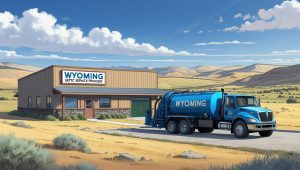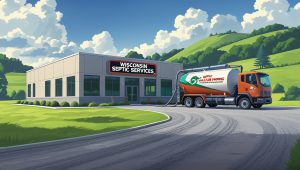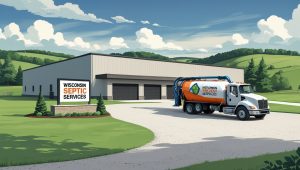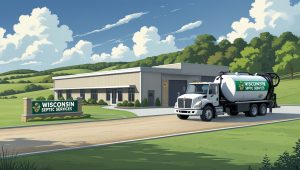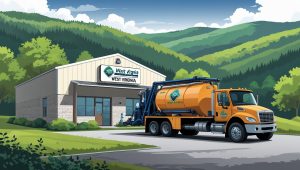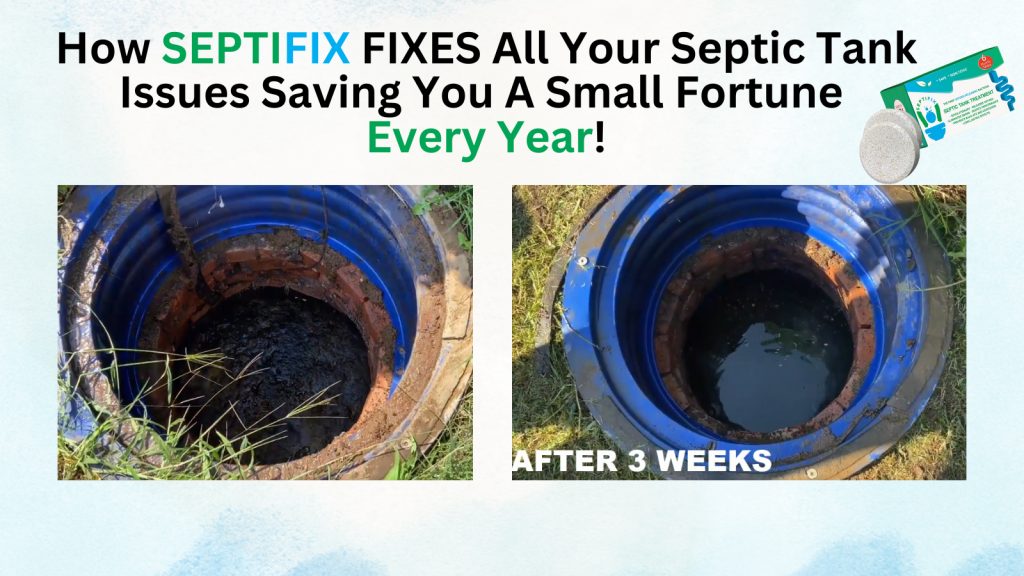Vacuum septic systems are cutting-edge solutions designed to manage wastewater efficiently, particularly in regions prone to high rainfall. These systems offer a reliable and environmentally friendly alternative to traditional septic systems, making them ideal for both residential and commercial properties. By leveraging vacuum pressure to collect and transport wastewater, vacuum septic systems mitigate many of the challenges associated with conventional gravity-fed systems.
Table of Contents
- Overview of Vacuum Septic Systems
- Applications in Residential Properties
- Benefits for Homeowners
- Applications in Commercial Properties
- Addressing Regional Septic Problems
- Case Study: Successful Implementation
- Components of Vacuum Septic Systems
- Environmental Benefits
- Cost Considerations
- FAQs: Vacuum Septic Systems
- Septifix
- Septic Permit Links by State
Traditional septic systems have been the norm for decades, but they often struggle in areas with high rainfall or poor soil conditions. The inefficiencies of these systems can lead to environmental hazards, including groundwater contamination and surface water pollution. Vacuum septic systems address these issues by providing a more efficient and reliable method of wastewater management. This article will delve into the applications, benefits, and operational mechanics of vacuum septic systems in both residential and commercial settings.
Overview of Vacuum Septic Systems
Vacuum septic systems operate by using a network of pipes under vacuum pressure to collect wastewater from homes or businesses. This approach differs significantly from traditional gravity-fed systems, which rely on gravity to move wastewater through the system. The vacuum system ensures that wastewater is efficiently transported to a central treatment facility, reducing the risk of backups and environmental contamination.
Applications in Residential Properties
In residential settings, vacuum systems provide several benefits. They are particularly useful in areas where traditional septic systems may struggle due to high rainfall or poor soil conditions. These systems help maintain a clean environment by preventing wastewater from contaminating groundwater and surface water. Additionally, they require less land than traditional systems, making them suitable for smaller lots.
Benefits for Homeowners
- Efficient Wastewater Management: ensures that wastewater is collected and treated efficiently, reducing the risk of overflows and environmental damage.
- Reduced Maintenance: These systems require less maintenance compared to traditional septic systems, as they are less prone to clogs and backups.
- Environmental Protection: By preventing wastewater from entering waterways, vacuum septic systems help protect local ecosystems and maintain water quality.
Applications in Commercial Properties
Commercial properties also benefit from vacuum septic systems due to their reliability and cost-effectiveness. In areas with high rainfall, these systems ensure that businesses can operate without interruptions caused by septic system failures. Moreover, they offer a scalable solution, allowing for easy expansion as businesses grow.
Benefits for Businesses
- Reliability: It provides consistent service, minimizing downtime and ensuring that businesses can operate smoothly even during adverse weather conditions.
- Cost-Effectiveness: These systems can reduce long-term maintenance costs by minimizing the need for repairs and replacements.
- Scalability: As businesses expand, vacuum septic systems can be easily upgraded to accommodate increased wastewater volumes.
Addressing Regional Septic Problems
One of the significant advantages of this option is its ability to address regional septic problems in areas with high rainfall. Traditional septic systems can fail during heavy rainfall, leading to environmental hazards and costly repairs. Vacuum septic systems mitigate these risks by efficiently managing wastewater, even under adverse weather conditions.
Case Study: Successful Implementation
A notable example of the successful implementation of vacuum septic systems can be seen in coastal regions where high rainfall is common. These systems have been instrumental in preventing wastewater overflows and protecting local waterways. By adopting them, communities can ensure a cleaner environment and reduce the economic burden associated with septic system failures.
Components of Vacuum Septic Systems
Understanding the operational mechanics is crucial for their effective implementation. These systems consist of a network of pipes connected to a central vacuum station. Wastewater from homes or businesses is drawn into these pipes through vacuum pressure, which is maintained by pumps at the central station. The wastewater is then transported to a treatment facility for processing.
- Vacuum Pumps: These are the heart of the system, generating the vacuum pressure needed to collect wastewater.
- Piping Network: A network of pipes distributes the vacuum pressure to all connected properties.
- Central Vacuum Station: This is where wastewater is collected and pumped to a treatment facility.
Environmental Benefits
They offer significant environmental benefits by reducing the risk of wastewater contamination. Traditional septic systems can leak into groundwater and surface water, posing serious environmental risks. In contrast, it ensures that wastewater is contained and treated properly, protecting local ecosystems and maintaining water quality.
Cost Considerations
While vacuum septic systems may have higher upfront costs compared to traditional systems, they offer long-term cost savings through reduced maintenance and repair needs. Additionally, the environmental benefits and reliability of these systems can lead to lower overall costs over time.
Conclusion
In conclusion, vacuum septic systems provide a robust and efficient solution for managing wastewater in both residential and commercial settings, especially in regions prone to high rainfall. Their efficiency, reliability, and environmental benefits make them an attractive alternative to traditional septic systems. For those interested in exploring septic solutions further, consulting with experts in septic tank technologies can help find the best fit for specific needs.
FAQs: Vacuum Septic Systems
Here are some frequently asked questions about vacuum septic systems, along with answers to help you better understand their applications and benefits:
How do I determine if a vacuum septic system is right for my property?
Consulting with a professional in septic tank technologies can help you decide if a vacuum septic system is suitable for your specific needs and property conditions.
What are the primary benefits of vacuum septic systems over traditional systems?
Vacuum septic systems offer efficient wastewater management, reduced environmental impact, and lower maintenance costs compared to traditional systems. They are particularly effective in areas with high rainfall or poor soil conditions.
How do vacuum septic systems handle high rainfall conditions?
These systems are designed to efficiently manage wastewater even during heavy rainfall, reducing the risk of overflows and environmental contamination. Their vacuum pressure ensures consistent wastewater collection and transport to treatment facilities.
Can vacuum septic systems be used in both residential and commercial settings?
Yes, vacuum septic systems are suitable for both residential and commercial properties. They provide reliable wastewater management and are scalable for commercial use, making them a versatile solution.
What maintenance is required for vacuum septic systems?
Regular inspections and occasional repairs are necessary to ensure the system operates efficiently. However, vacuum septic systems generally require less maintenance than traditional systems due to their design.
Are vacuum septic systems more expensive than traditional systems?
While the initial cost of vacuum septic systems might be higher, they offer long-term cost savings through reduced maintenance and repair needs.
Directory | Wyoming Septic Service Providers : Best Professionals
Directory | Wisconsin Septic Service Providers | Part 3
Directory | Wisconsin Septic Service Providers | Part 2
Directory | Wisconsin Septic Service Providers | Part 1
Directory | West Virginia Septic Service Providers : Best Professionals
Winter Pumping: Should You or Shouldn’t You?
Septic Installer Registration in Bay County, Michigan
Sustainable Materials for Septic Systems: Eco-Friendly Solutions
Septifix


